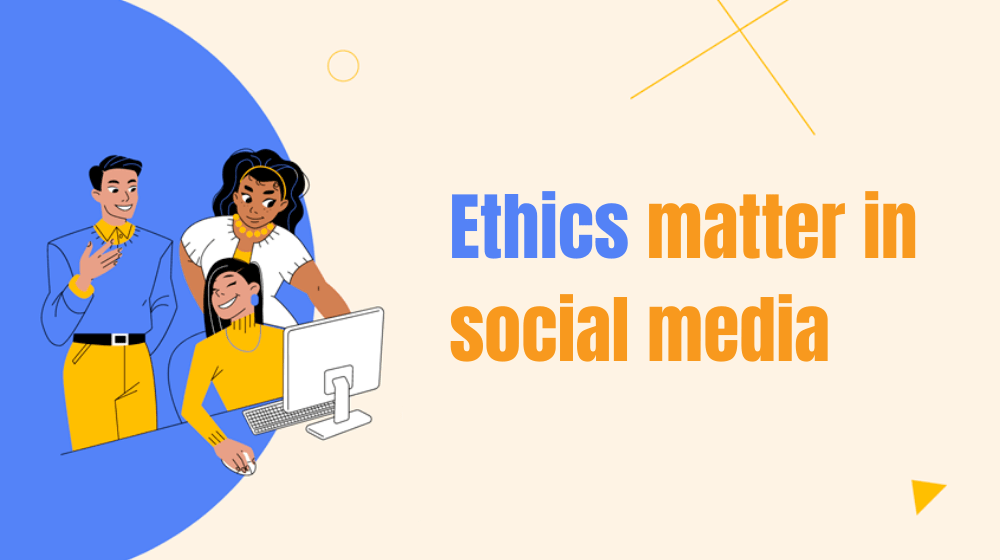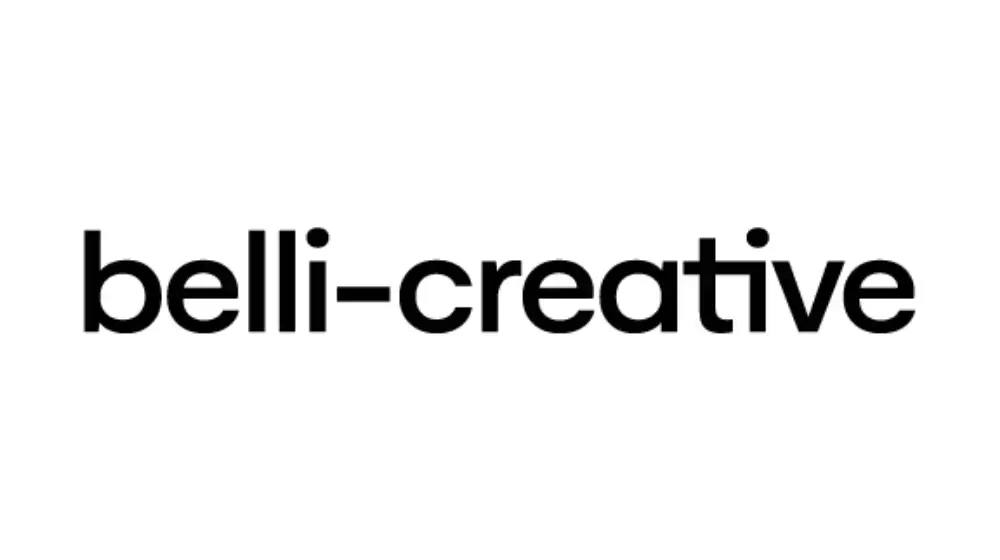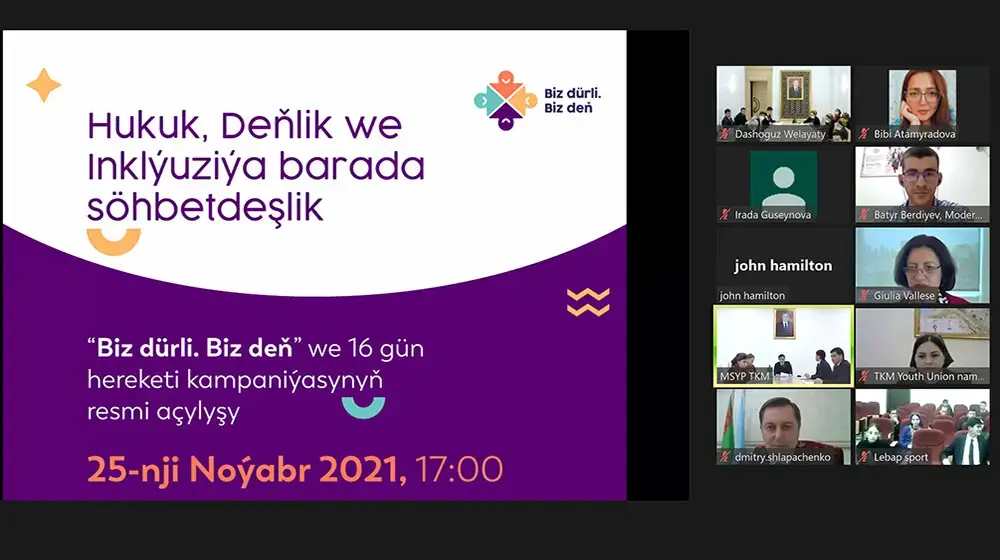Social media are set of tools for people to exchange information, audio, and video content and disseminate different ideas in a virtual community. On the other hand, the term ethics is defined as “the ability to define and differentiate between what is right and what is wrong”. The way social media is being used these days brings lots of side effects with it, the most important been on the human ethics.
As an effort to reduce the problem in using social media, ethical conduct is needed to prevent mutually insulting or accusing others of no apparent reason. As a matter of fact, these matters will lead the users into law for being careless in spreading information on the internet.
Hence, UNFPA Turkmenistan launched a digital campaign “We are diverse. We are equal.” dedicated to Human Rights both, personally and digitally which also includes ethical communication, respectful engagement in online platforms.
Taking the most obvious problems of social media into account, it seems that LinkedIn, WhatsApp, and Pinterest are more ethical, on the whole, while Twitter, Facebook, Instagram, Tik-Tok, and Imo, are the least ethical.
“Our daily routine is consumed so much by the social media that we simply cannot live without it anymore. Ethics matter in every sphere of our life because we WANT to be treated well to feel valuable and safe. The same thing with social media. In the beginning Internet seemed to be anonymous. But today it is completely not. You write your name, confirm your page by your phone number, your personal email, some documents for commercial accounts. So, anyone may study your personality.” told us Maya Amanmyradova – journalist, social media manager as well as Live Event speaker on 10th of December entitled Youth Dialogue on Rights, Equality, and Inclusiveness.
Maya also noted: “I’ve put my own rules toward the digital world, first: don’t tell people on the internet things you do which you would never tell in real life. Second: It’s better to dissent and argue in direct messages rather than in public conversation".
In social media, using fake accounts also may bring crucial circumstances. Kerim was a shy and introverted man in real life. One day his friend persuaded him to use Instagram to look for a girlfriend. Since he never had such experiences before, he was asked to change his picture with a handsome model and also use fake information about himself. He started using Instagram and one day got a friendship request from a pretty girl. When he looked at her profile, he found out that she was also from his neighborhood. He got excited and immediately accepted her as a friend. Throughout the chatting, he only shared 30% of his real personality facts and focused on using fake information instead.
One day they both planned to meet each other at a friend’s party. He was planning to tell that girl his real identity once he will meet her so he got ready and went to the party. There all of his friends were having fun, but he was looking for that white dress girl who was his dream. When he approached her, he was devastated to find out that the girl of his dream was in fact his little sister. When he confronted her, she confessed that changing her identity was her friend’s idea. From that day on, he never talked to her sister again and moved to a different city.
Such incidents discourage the victims to trust anybody and always take relationships very skeptically. They lose their self-esteem which ruins their professional life and also their social life.
“Social media sector grows. And will grow. They will improve to engage more users and reform rules to make the audience feel more comfortable and more involved. Blocking many accounts on Instagram and Telegram shows us the future. That is why users should become the same polite and respectful along with the social media they use. Or they will need to search for another platform.” concluded Maya.





